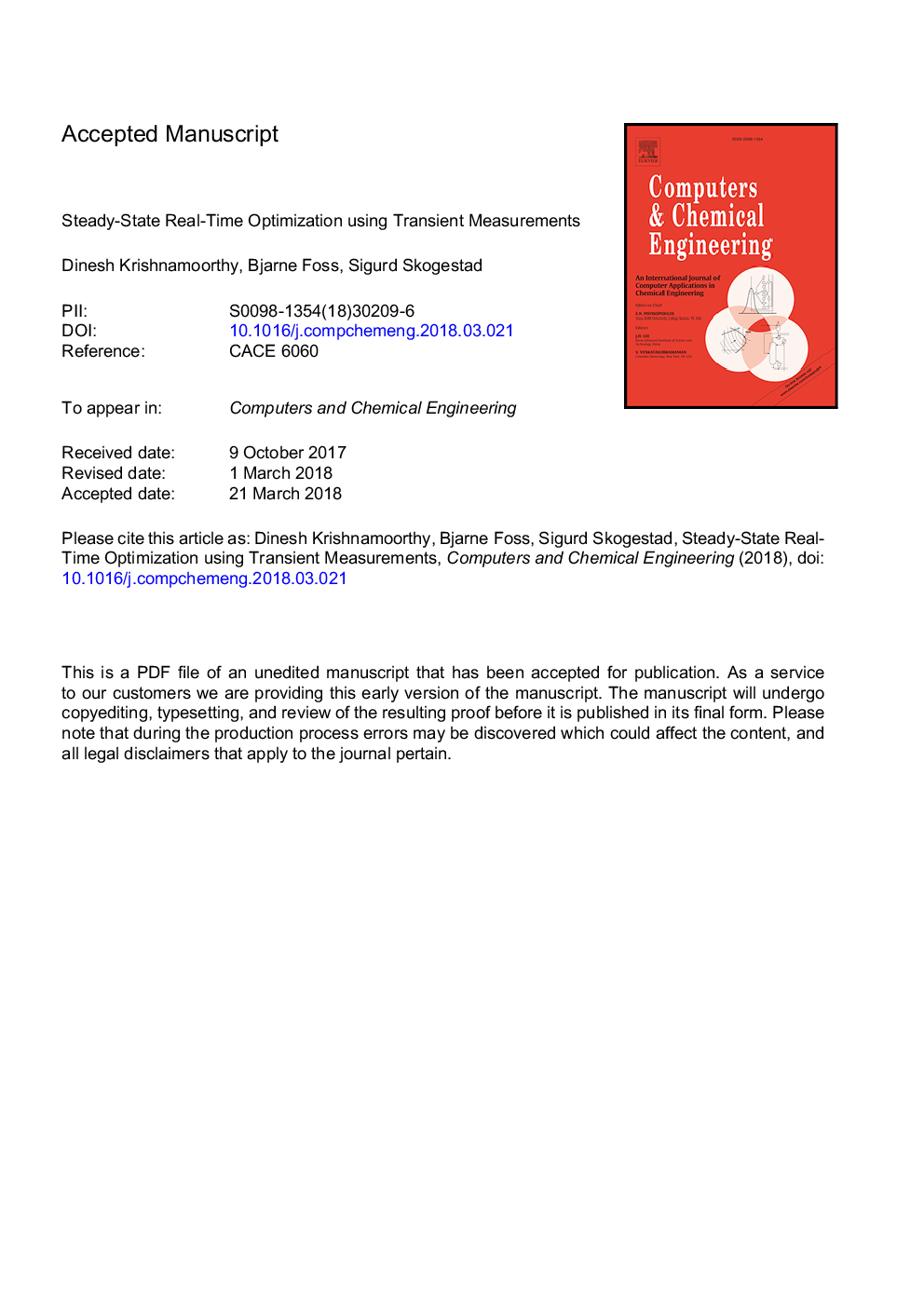| Article ID | Journal | Published Year | Pages | File Type |
|---|---|---|---|---|
| 6594709 | Computers & Chemical Engineering | 2018 | 16 Pages |
Abstract
Real-time optimization (RTO) is an established technology, where the process economics are optimized using rigourous steady-state models. However, a fundamental limiting factor of current static RTO implementation is the steady-state wait time. We propose a “hybrid” approach where the model adaptation is done using dynamic models and transient measurements and the optimization is performed using static models. Using an oil production network optimization as case study, we show that the Hybrid RTO can provide similar performance to dynamic optimization in terms of convergence rate to the optimal point, at computation times similar to static RTO. The paper also provides some discussions on static versus dynamic optimization problem formulations.
Related Topics
Physical Sciences and Engineering
Chemical Engineering
Chemical Engineering (General)
Authors
Dinesh Krishnamoorthy, Bjarne Foss, Sigurd Skogestad,
